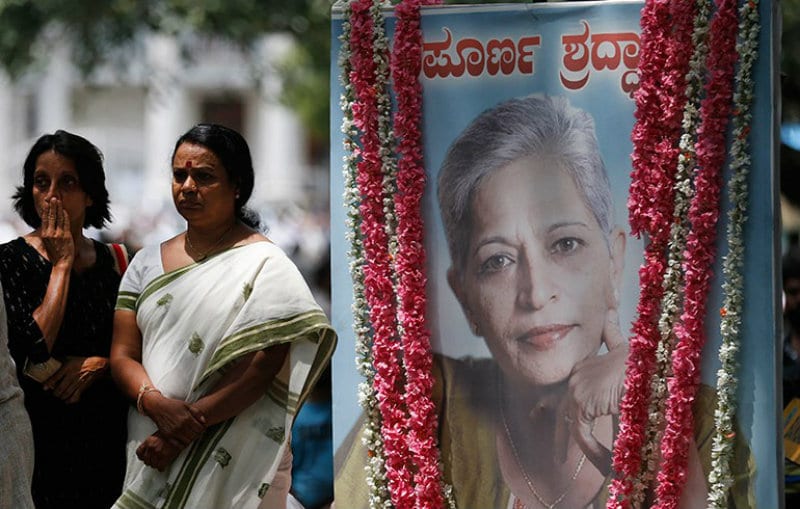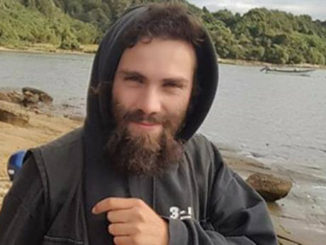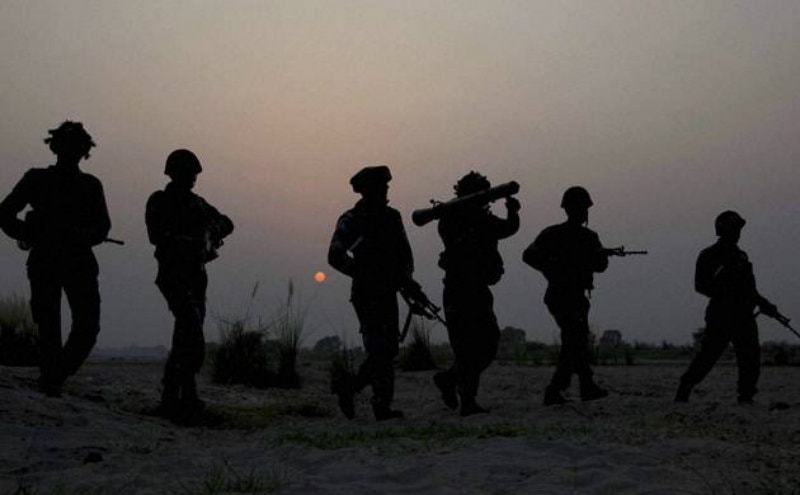
NEW DELHI – A prominent Indian journalist critical of Hindu nationalist politics has been shot dead in the southern state of Karnataka, sparking widespread protests in several cities including capital New Delhi.
Gauri Lankesh, 55, was found lying in a pool of blood on the porch at her home in Bangalore on Tuesday night, the Times of India reported.
She was shot in the head and chest by gunmen who arrived by motorcycle. The motive for the crime was not clear.

The most high profile Indian journalist murdered in recent years, Gauri was buried with full state honors.
Karnataka state’s Chief Minister Siddaramaiah was one of the first to respond to her death, calling it an “assassination on democracy”. He also attended the funeral.
Shocked to learn abt murder of tall progressive force & senior journalist Gauri Lankesh. Such cold blooded acts deserve highest condemnation
— CM of Karnataka (@CMofKarnataka) September 5, 2017
Ms. Lankesh edited a weekly newspaper and was known as a fearless and outspoken journalist. She was known for her secularist criticism of right-wing and Hindu nationalists, including members of India’s ruling Bharatiya Janata Party.
One of Lankesh’s last tweets before her death read, “Why do I feel that some of ‘us’ are fighting between ourselves? We all know our ‘biggest enemy’. Can we all please concentrate on that?”
why do i feel that some of `us' are fighting between ourselves? we all know our “biggest enemy''. can we all please concentrate on that?
— Gauri Lankesh (@gaurilankesh) September 4, 2017
Last year, Gauri was convicted of defamation and sentenced to six months in prison for a story on a local leader of BJP. At the time of her death, Gauri was on bail appealing the verdict.
BJP ministers have also openly attacked journalists, using terms like “presstitute” (a mix of press and prostitute) to describe them.
Gauri worked for The Times of India and later ran an independent newspaper, Lankesh Patrike, along with her brother Indrajit for several years. The newspaper had been founded by her father, P Lankesh, a left-wing poet and writer.

After a split with her brother, she left to start several publications, including her own newspaper Gauri Lankesh Patrike.
Award-winning filmmaker Kavitha Lankesh was her sister.
Gauri was sympathetic to the Naxalites, or Maoist rebels who have been carrying out a bloody insurgency against the government, and was involved in the reintegration of former rebels.
Officials said they suspected she had been under surveillance by the gunmen. An investigation has been opened.
The Editors Guild of India released a statement calling her murder an “ominous portent for dissent in democracy and a brutal assault on the freedom of the press”.
On social media, the hashtag #GauriLankeshMurder was the top trend on Twitter India.
However, there have also been tweets that have condemned her and even celebrated her death.
Kalburgi’s death came just months after the murder of a Communist leader in February 2015, as well as the 2013 killing of a writer who was committed to debunking superstitions.
According to the Committee to Protect Journalists, there have been no convictions in any of the 27 cases of journalists murdered for their work in India since 1992.



